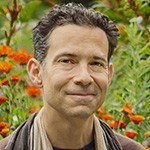Why does NVC practice, and NVC training/coaching, appear to be not enough to bridge divides between people? This article takes a look at the trickle down effect of our societal conditioning, what we can add to our NVC lense, and what we can do "upstream" when NVC doesn't seem to be enough. Additionally, the article talks about unseen constraints that men, women and minority groups face in organizational settings...










